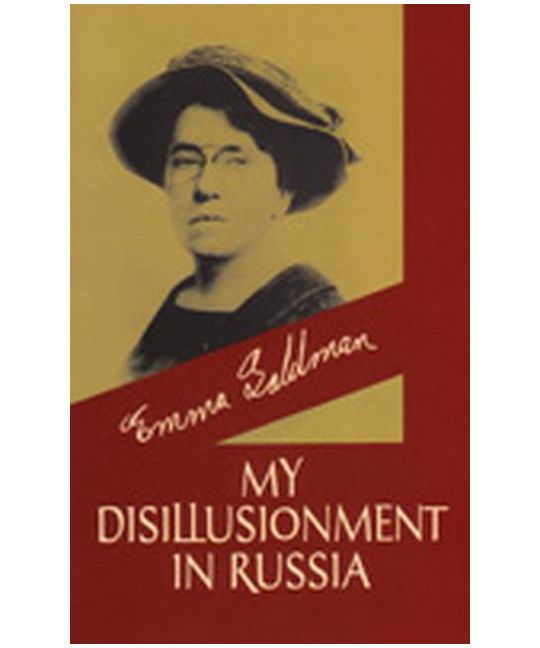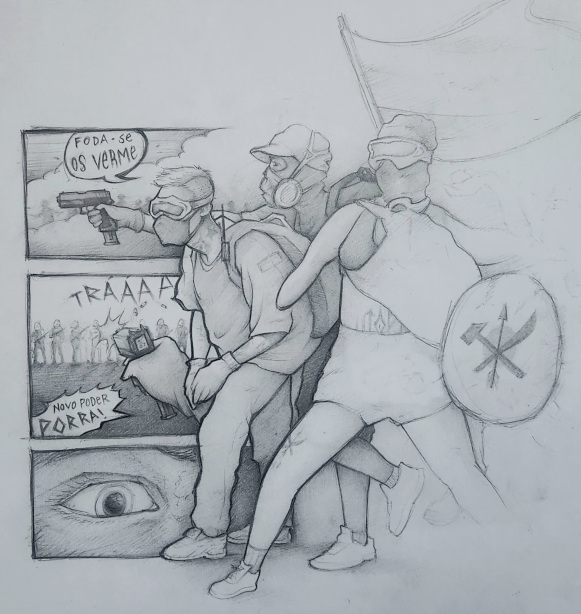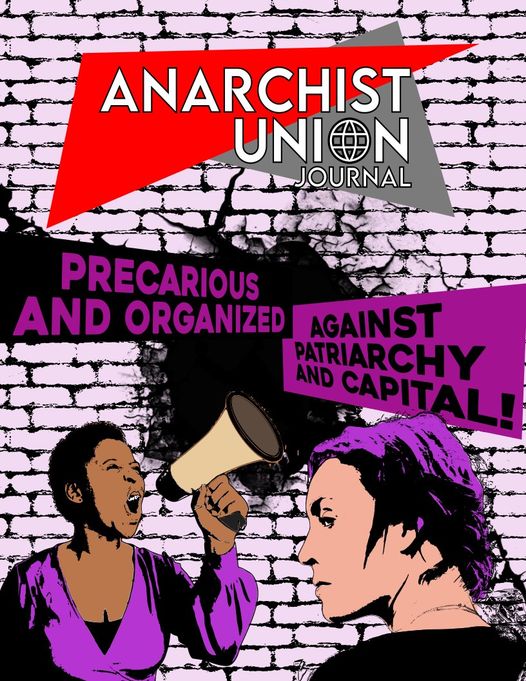By John Pring on 22nd February 2024
Listen
Disabled activists have announced a fightback against a series of “horrific” government social security reforms and have called for “active resistance” to the plans, starting with a national day of action and a protest in London early next month.
A meeting in parliament this week heard that disabled people could not wait for the general election, because there was no guarantee that a Labour government would reverse the government’s proposals.
Instead, they called for a return to street protest, led by Disabled People Against Cuts (DPAC), to resist Conservative plans to cut out-of-work disability benefits and introduce other harmful social security reforms.
That resistance will begin with a day of action on 4 March, which will include a protest in central London two days before the spring budget.
Monday’s meeting was attended by leading disabled people’s organisations from across the UK, and senior figures from two major unions: PCS, which represents many frontline DWP workers, and Unite, which has close links with disabled activists.
Among DPAC’s concerns are government plans to intensify the conditions and sanctions imposed on benefit claimants, and to tighten the work capability assessment (WCA).
They also point to proposals that will eventually scrap the WCA, and rely instead on the personal independence payment (PIP) assessment.
This could see benefit cuts for hundreds of thousands of disabled people and new powers for unqualified work coaches to decide what work-related activity a disabled person should carry out.
DPAC also says that hundreds of thousands of disabled people could be at risk of having their benefits sanctioned by the government’s roll-out of so-called “in-work conditionality”*.
Ellen Clifford, of DPAC and the UK coalition of Deaf and disabled people’s organisations that monitors the implementation of the UN disability convention, said disabled people were now faced with “another set of horrific proposals in the pipeline” after 14 years of their lives becoming “harder and harder” under Conservative-led governments.
She said Labour had promised to work in co-production with disabled people on social security policy if it won power, but disabled people remembered that it was Labour that introduced the WCA “and find it difficult to trust where that co-production will go”.
She said: “The line seems to be that Labour needs to present itself as being tough on welfare reform in order to get elected.”
She added: “We simply can’t afford to wait until after an election and definitely not for a lengthy process of co-production to start fighting back against these horrific proposals.
“We can’t wait for anyone else to stop them.”
Paula Peters, a member of DPAC’s national steering group, told the meeting that “strong and principled leadership” was needed to oppose the “completely unacceptable” government reforms and to raise awareness among the public about why they were wrong, but “Labour clearly isn’t going to do that”.
She said: “We need to build a united campaign that speaks loudly to say that these changes are completely unacceptable, and we need to demand instead a social security system that is fair for all, one that provides a social safety net that affords a decent living, one that we can access without having our mental health destroyed, and one that doesn’t kill us.”
She said that was why DPAC has called the national day of action for 4 March, two days before the spring budget, which will include a protest in London, and – it is hoped – other protests organised by local groups around the country, while DPAC will also suggest ways that disabled activists can take part from home.
Andy Greene, a member of DPAC’s national steering group, who has played a crucial role in past DPAC direct action, told the meeting: “I think there is a real need just to get back on the streets… and make sure we’re a street presence again, because I think that is where our strength came from previously.
“I think that re-establishing that commitment to street politics is important for any campaign.”
John McDonnell, the Labour MP, DPAC member and former shadow chancellor, who hosted the meeting, said he believed the event was about the “relaunch of a resistance movement on disability” after years of “cuts, austerity, stigma, threats, and, to be frank, abuse”.
He said it was vital to “demonstrate we are back again” and that disabled people needed to “mobilise” and “ruthlessly pursue” their demands.
He said: “I just get angry about it, that we are back to where we were after all these years, and there are too many people suffering as a result of that.
“So, this time we can’t allow ourselves to fail.”
Megan Thomas, policy and research officer for Disability Wales, told the meeting that disabled people and their allies “must fight these announcements with all that we have”.
She said Disability Wales research on the cost-of-living crisis had found an “extremely flawed” social security system that was “humiliating, traumatising and incredibly complicated”.
And she said the government’s proposed changes would “do nothing to support people into work and do nothing to support people out of poverty”.
Douglas Bryce, deputy chief executive of Disability Equality Scotland, said it was still unclear how the UK government reforms would impact on Scotland, as the Scottish government has introduced its own version of personal independence payment.
But he said he needed to “robustly highlight the potential danger of suicide and increased hospitalisation, particularly of those with mental health issues” if the UK government’s proposals are brought in.
Michael Lorimer, from The Omnibus Partnership, a grassroots organisation of disabled people in Northern Ireland, said: “The new proposals are brutal and will unquestionably cause more poverty, deaths and suicides if they are not stopped.
“For this, we need to unite across the UK to build a strong resistance, so that whoever comes to power at the next general election knows that if they cut disability benefits and dare to try what the Tories are proposing, they will face serious, coordinated grassroots opposition.”
He said that Deaf and disabled campaigners in Northern Ireland were organising to set up a Northern Ireland branch of DPAC.
Svetlana Kotova, director of campaigns and justice at Inclusion London, said it was vital to find a way to communicate the financial distress disabled people were facing to the general public “who the Labour party probably thinks wants them to be tough on social security”.
She said: “I want to think that they don’t know the horrific situation we are in and wouldn’t support further cuts.”
She called for support from other organisations for the Disabled People’s Manifesto, which includes a call for a rights-based social security system, abolition of sanctions and a decent income for disabled people.
Marion Fellows, the SNP’s Westminster spokesperson on disability, the only MP apart from McDonnell to attend the meeting, said she had spoken frequently in parliament about the pledge made by Social Security Scotland – set up by the Scottish SNP government – to provide “dignity, fairness and respect”.
She said: “That’s what most people expect, and that’s what should be a right for disabled people.”
Ian Pope, acting vice-president of the PCS union, and its DWP vice-president, said his union represented members who “administer this awful benefits system”, with many of them also subject to that system as claimants.
He told the meeting of the dossier of evidence that was presented to DWP late last year and showed the depth of the department’s “staffing crisis”, with his members “going under at an alarming rate”.
He said: “These testimonies demonstrated that the staffing crisis at DWP is creating an epidemic of mental ill-health among staff and has failed to protect the most vulnerable citizens in society.”
He said DWP had been trying – and failing – to recruit 20,000 more staff.
He said: “Why could it be that people don’t want to come and work in the DWP?
“Could it be that 25,000 admin staff at the Department for Work and Pensions, and I’m one included, are currently earning less than the national living wage?
“It is an absolutely shocking state of affairs.”
He said that many of the 13,500 work coaches who joined DWP during the pandemic have left.
He added: “They told the department when they left, and they told the union when they left: ‘This isn’t what I signed up for. I thought I was joining the DWP to make a difference, to help the most vulnerable people in society, not to issue sanctions, not to issue conditionality, not to harass people into offices.’”
He also pointed to Social Security Scotland’s “dignity, fairness and respect” pledge, and said: “Imagine the Westminster DWP putting that on their website.
“That has to be something we aspire to, everybody in this room, we have to aspire to, our future Labour government have to aspire to that.”
Brett Sparkes, a regional officer for Unite, which represents both workers and benefit claimants who don’t have jobs, said his union was campaigning against in-work conditionality.
He said that this and other government proposals, including changes to the WCA, “will increase the conditionality demands on disabled people to take jobs that not only do not suit them but offer no route to progression” and will keep people “in a cycle of low pay and insecure work”.
*Under in-work conditionality, those universal credit claimants who already have a paid job must still meet DWP requirements to look for further part-time jobs, increased hours from their current employer, or higher-paid jobs, or face a possible sanction
Picture: A DPAC direct action protest
A note from the editor:
Please consider making a voluntary financial contribution to support the work of DNS and allow it to continue producing independent, carefully-researched news stories that focus on the lives and rights of disabled people and their user-led organisations.
Please do not contribute if you cannot afford to do so, and please note that DNS is not a charity. It is run and owned by disabled journalist John Pring and has been from its launch in April 2009.
Thank you for anything you can do to support the work of DNS…
Donate








